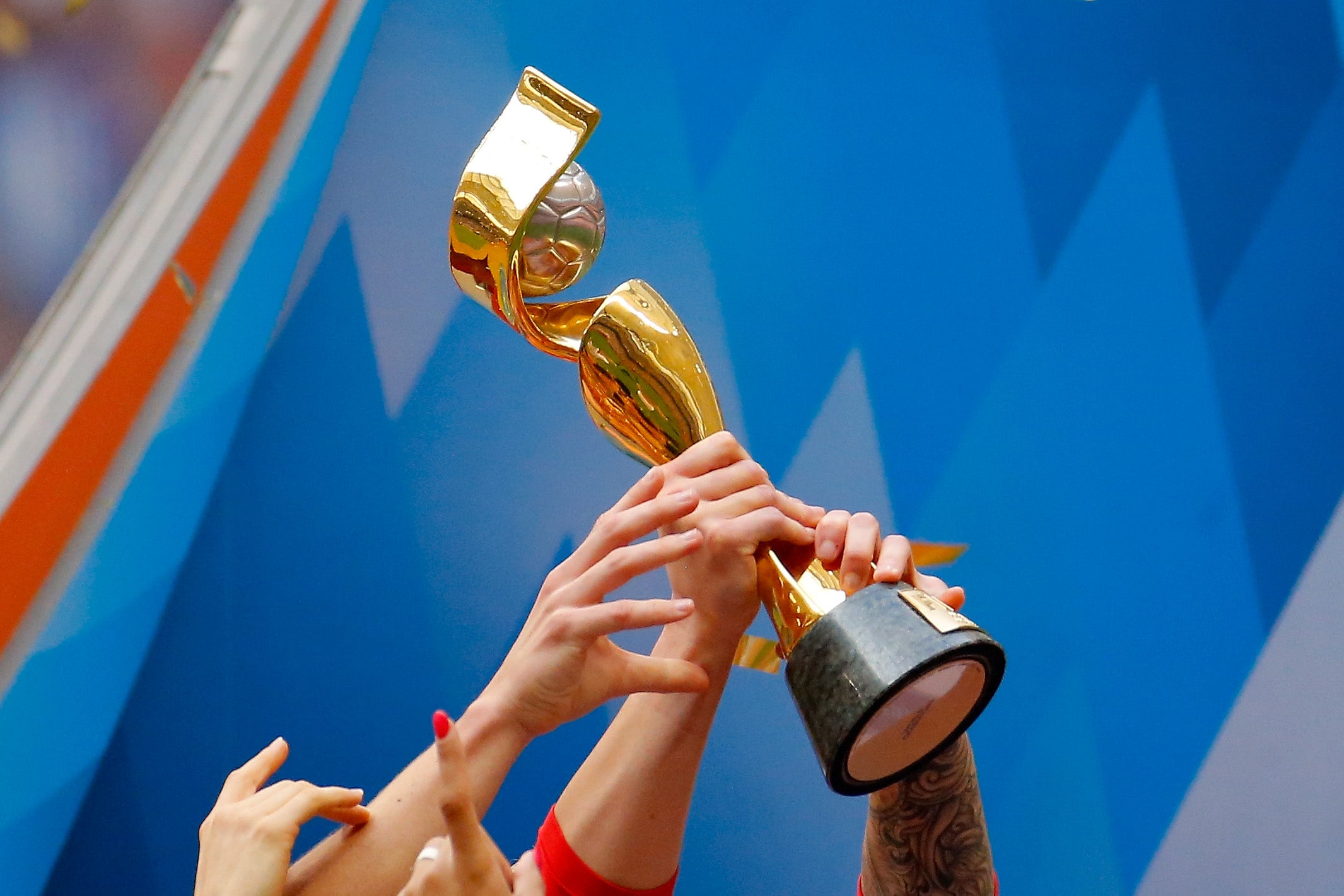‘They abuse us’: Female workers making Fifa World Cup merchandise face systemic harm, says report
The report, by human rights organisation Equidem, involves distressing testimonies from workers detailing verbal abuse and the illegal denial of worksite childcare and maternity leave

Your support helps us to tell the story
From reproductive rights to climate change to Big Tech, The Independent is on the ground when the story is developing. Whether it's investigating the financials of Elon Musk's pro-Trump PAC or producing our latest documentary, 'The A Word', which shines a light on the American women fighting for reproductive rights, we know how important it is to parse out the facts from the messaging.
At such a critical moment in US history, we need reporters on the ground. Your donation allows us to keep sending journalists to speak to both sides of the story.
The Independent is trusted by Americans across the entire political spectrum. And unlike many other quality news outlets, we choose not to lock Americans out of our reporting and analysis with paywalls. We believe quality journalism should be available to everyone, paid for by those who can afford it.
Your support makes all the difference.Female workers who produce Fifa merchandise for events such as the Women’s World Cup have endured pay below minimum wage, verbal abuse, unpaid overtime and threats of job loss if they fall pregnant, according to a new report by human rights organisation Equidem.
Equidem has criticised Fifa for not taking action on a situation that seems to go against the advances the tournament has been responsible for, and president Gianni Infantino has been urged to extend “that progress to addressing the harms its women workers experience”.
Equidem has put its report into the context of the litany of migrant labour abuses that occurred due to the men’s World Cup in Qatar and asked why there has been no update from a human rights subcommittee that was supposed to be set up to assess the legacy of that event, raising questions about Fifa’s expressed commitment to improving working conditions.
The report features interviews with women workers in factories in Bangladesh that make official merchandise for Fifa events, and involves distressing testimonies including verbal abuse and the illegal denial of worksite childcare and maternity leave. Equidem heard several stories of women denied freedom of association.
“We have a daily target to reach,” one worker said. “The supervisor fixes our daily target. I make 60-80 pieces per hour. I can only go to the restroom after finishing my hourly target. When a lot of work piles up, they don’t let us go anywhere. They verbally abuse us. I work for 10-12 hours a day at my sewing machine. Today, my supervisor told me to give 80 pieces per hour, but it was quite difficult to make 80 pieces. I made 60 pieces per hour. He shouted at me several times.
“I can’t keep my son with me. I work between eight and 12 hours every day. Who will look after him? I searched for someone to leave my son with when I went to work, but I did not get anyone. We don’t have a childcare room in our factory. My son lives in Dhaka with my mother-in law and father-in-law.”
Workers described a common practice of being told they would lose their jobs if they became pregnant during the first two years of employment. One woman employed as a sewing machine operator explained: “When I started working here, the factory doctor told me not to have babies for the first two years. I was told that after completing two years, I can have children. If I get pregnant before that, I will have to resign. They will not give me any leave.”
Some workers spoken to by Equidem reported that they did not get paid any maternity leave at all, even though they are supposed to be legally entitled to four months, making it a clear violation of Bangladeshi law.
Equidem’s CEO Mustafa Qadri states: “After the Men’s World Cup this past year in Qatar, FIFA pledged to set up a human rights subcommittee that would assess the legacy of the 2022 tournament, although there has been no further update as to the status of that assessment, nor its learnings. Equidem urges FIFA to extend its expressed commitment to improving working conditions to women workers in their apparel supply chains.
"Yet, the world has seen significant advances in pay parity for women players, including making the Women’s World Cup more professional, ensuring equal regulations and conditions, and fair distribution of prize money to players. The United States team, after years of negotiations, public battles, and court filing won an equal pay deal that makes them one of the best-paid national teams in the world.
"The FIFA Women’s World Cup 2023 brings with it many positive improvements for its players, and it is crucial that FIFA extends that progress to addressing the harms its women workers experience. FIFA has the power, money, and resource to address this at the systemic level, and we will keep monitoring their global supply chains until it does.
“This movement toward gender parity within FIFA, signals a heightened commitment within the organisation to fair conditions for women players—on par with their male counterparts. This should extend to all women, not just those under the stadium lights.”
A Fifa spokesperson said: “FIFA has stringent labour rights requirements for companies producing FIFA-licensed goods and takes any allegation of labour rights abuse in its supply chain very seriously. FIFA is in contact with both Equidem and the respective companies to further investigate the matter.”


Join our commenting forum
Join thought-provoking conversations, follow other Independent readers and see their replies
Comments